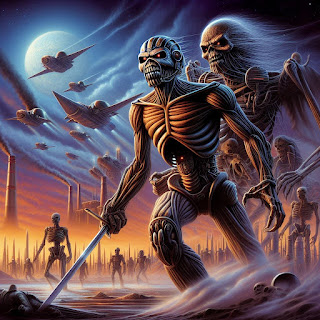Introduction:
In the vast universe of cinematic achievement, science fiction has often been the genre that dares to explore the unknown, pushing the boundaries of imagination and technology. Over the years, the Oscars, the pinnacle of recognition in the film industry, have occasionally honored these visionary works that transport audiences beyond the confines of reality. Let's embark on a journey through the history of sci-fi films at the Oscars, where the extraordinary meets the extraordinary.
The Dawn of Recognition:
While sci-fi films were initially overlooked at the Oscars, the genre started gaining recognition in the mid-20th century. Notably, in 1969, Stanley Kubrick's groundbreaking "2001: A Space Odyssey" received recognition for its innovative visual effects, setting the stage for future sci-fi epics.
The Rise of Blockbusters:
As the film industry entered the era of blockbuster filmmaking, sci-fi became a major player. George Lucas's "Star Wars" (1977) not only revolutionized the genre but also secured numerous Oscars, including Best Art Direction and Visual Effects. This marked a turning point, proving that sci-fi could captivate audiences and impress the Academy.
Exploring Humanity through Alien Encounters:
The '80s and '90s witnessed a surge in sci-fi films exploring the human condition through encounters with extraterrestrial beings. "E.T. the Extra-Terrestrial" (1982) and "Close Encounters of the Third Kind" (1977) received accolades for their emotional depth and storytelling prowess, challenging the perception of sci-fi as mere spectacle.
The Matrix and the New Millennium:
As the new millennium dawned, "The Matrix" (1999) revolutionized sci-fi filmmaking with its groundbreaking visual effects and philosophical undertones. The film's success at the Oscars, including wins for Best Film Editing and Visual Effects, signaled a growing acceptance of sci-fi as a legitimate form of artistic expression.
Gravity and Interstellar: A New Frontier:
In the 2010s, films like "Gravity" (2013) and "Interstellar" (2014) demonstrated the genre's ability to combine spectacle with emotional depth. These films not only earned critical acclaim but also secured Oscars for Best Director and Best Visual Effects, showcasing the evolving appreciation for the artistic and technical merits of sci-fi.
The Arrival of Sci-Fi Auteurs:
Recent years have seen acclaimed directors like Denis Villeneuve ("Arrival," 2016) and Christopher Nolan ("Inception," 2010) bringing their unique vision to the sci-fi genre. These films have not only challenged conventional storytelling but have also garnered attention from the Academy, proving that sci-fi can be both intellectually stimulating and visually captivating.
Conclusion:
As we reflect on the history of sci-fi films at the Oscars, it's evident that the genre has evolved from being a niche interest to a vital and respected part of cinematic storytelling. With each passing year, filmmakers continue to push the boundaries of what is possible, inviting audiences to explore the farthest reaches of the imagination. The Oscars, in turn, stand as a testament to the enduring impact and significance of science fiction in the world of cinema.


